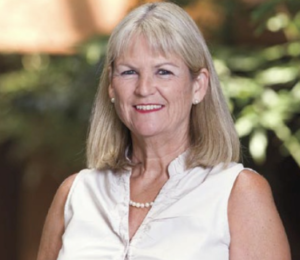In the second part of this two-part interview (read part one here), Bridget Waller, R.N., founder and owner of Hillendale Home Care, talks to SevenPonds about non-medical home care and how it can be integrated with hospice when patients are reaching the end of life.
Debra: Thank you again, Bridget, for taking the time to talk to me about non-medical home care and your company, Hillendale Home Care. The last time we talked, you were speaking about working with other agencies. Do you ever refer patients to hospice?
Bridget: Certainly. We monitor each patient’s condition carefully. If we believe a patient’s health is declining to the point that they will soon die, we meet with the patient and the family to discuss the changes we have observed. We then offer hospice care — in addition to our care — to help the patient remain comfortable and manage his or her symptoms in the home. If the patient is agreeable, we help them get in touch with the hospice of his or her choice. If the patient and family do not have a preference, we will help them get in touch with local hospices and select an agency that best suits their needs.
Debra: How do you respond to the death of a client in your care?
Bridget: We encourage all of our staff who were involved in the patient’s care to attend the funeral or memorial services. The family usually obtains ongoing bereavement support from the hospice agency they were working with. We reach out to our employees and make sure they get the assistance they need if they are having difficult time dealing with a death.
Debra: It’s great that you reach out to your employees and get them the support they need. Now I’d like to change the subject a little and ask where you get your referrals.
Bridget: Our referrals come from many sources. We get a lot of repeat business. Clients are also likely to refer their friends and family members to us. Other referral sources include doctors, hospitals, hospices and medical home health agencies.
Debra: What can a person expect when she or he is referred to your agency?
Bridget: Either I or my staff go to the patient’s home and explain our services and the costs involved. Once the patient is admitted, we follow up after one or two visits to make sure that the patient is satisfied with his or her services. Administrative staff also visits within the first week. As I mentioned before, we monitor our patients frequently to ensure that the amount of care they are receiving matches their needs.
Debra: What are some tips for finding a non-medical care agency?
Bridget: First, talk with several agencies and choose the one with which you are most comfortable. Second, if you have insurance that covers non-medical care, make sure you choose an agency that is covered by your policy. Finally, stop by your loved one’s home for the first few weeks after care to observe the caregivers and ensure that the care provided is adequate.
Debra: To sum up, what is the biggest benefit of non-medical home care?
Bridget: Non-medical home care allows adults who are ill or injured to maintain the maximum level of independence in their own living space.
Debra: Thank you again, Bridget, for taking the time to talk to me.
Bridget: You’re most welcome! Thank you for your interest.

 How Can Non-Medical Care Keep Your Loved One Safe and Comfortable? An Interview with Bridget Waller, RN, Part Two
How Can Non-Medical Care Keep Your Loved One Safe and Comfortable? An Interview with Bridget Waller, RN, Part Two




 Our Monthly Tip: Make an “In Case of Death” File to Ease Loved One’s Grief
Our Monthly Tip: Make an “In Case of Death” File to Ease Loved One’s Grief
 Passing of Beloved Comedian Births a New Comedy Festival
Passing of Beloved Comedian Births a New Comedy Festival















